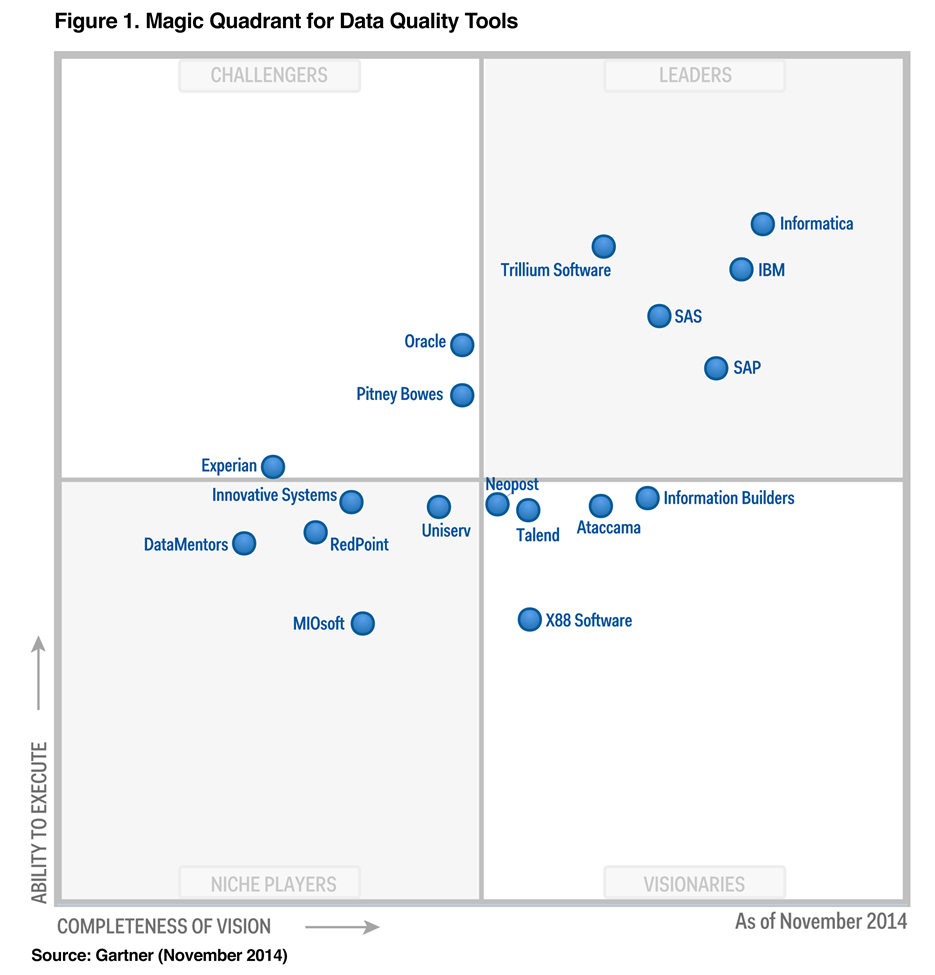News
What’s happening in our industry and what we’re doing

Launch of AdTruth Resolve simplifies cross-device audience management for marketers Experian Marketing Services today introduced AdTruth Resolve, a new technology designed to simplify the process of recognizing and engaging audiences across all devices and environments. AdTruth Resolve is designed for the multinational marketer that struggles to make smarter, more data-driven business decisions and keep up with today’s mobile-first consumer. AdTruth Resolve provides marketers with the means to reconcile and associate their existing digital identifiers — including cookies, device IDs, IP addresses and more — and then leverage that consolidated intelligence for visibility across devices. AdTruth Resolve represents another milestone in Experian Marketing Services’ long-term strategy to provide marketers with a ubiquitous, consistent and persistent link across all channels as part of the Experian Marketing Suite. Powered by a three-tiered identity-management framework, the Experian Marketing Suite’s Identity Manager gives marketers everything they need to persistently, accurately, effectively and respectfully recognize, resolve and reach consumers across all devices in all digital environments.

 Experian announced today that its 34th annual Vision Conference will challenge attendees to “Think Big,” focusing on data- and analytics-driven solutions to attain quality business growth.
One of the industry’s leading events, Vision 2015 will feature Earvin “Magic” Johnson, Jr., legendary NBA athlete and businessman; Dr. Madeleine K. Albright, former U.S. Secretary of State; and James W. Paulsen, Chief Investment Strategist at Wells Capital Management, as keynote speakers. Vision 2015 will be held May 3–6 at the Gaylord National Resort in the Washington, D.C. Area.
Experian announced today that its 34th annual Vision Conference will challenge attendees to “Think Big,” focusing on data- and analytics-driven solutions to attain quality business growth.
One of the industry’s leading events, Vision 2015 will feature Earvin “Magic” Johnson, Jr., legendary NBA athlete and businessman; Dr. Madeleine K. Albright, former U.S. Secretary of State; and James W. Paulsen, Chief Investment Strategist at Wells Capital Management, as keynote speakers. Vision 2015 will be held May 3–6 at the Gaylord National Resort in the Washington, D.C. Area.

It’s been an incredibly busy few months at Experian, not only with the debut of powerful new product features, but also the recent announcement that Experian now offers its members FICO® Scores through its direct-to-consumer products. Making FICO® Scores available through Experian products will allow consumers to boost their credit confidence more than ever before – allowing them to harness the power of a widely recognized family of credit scores to make wiser decisions about their financial futures. We think that knowledge might make those folks walk taller as they head to see their lenders.

 As many organizations look to turn data into actionable insight, a high degree of inaccurate information is limiting data insight and negatively impacting the bottom line. This is according to a new Experian Data Quality released today.
On average, U.S. organizations believe 32 percent of their data is inaccurate, a 28 percent increase over last year’s figure of 25 percent. This high degree of inaccurate information causes 91 percent of respondents to believe revenue is affected by inaccurate data in terms of wasted resources, lost productivity, or wasted marketing and communications spend.
As many organizations look to turn data into actionable insight, a high degree of inaccurate information is limiting data insight and negatively impacting the bottom line. This is according to a new Experian Data Quality released today.
On average, U.S. organizations believe 32 percent of their data is inaccurate, a 28 percent increase over last year’s figure of 25 percent. This high degree of inaccurate information causes 91 percent of respondents to believe revenue is affected by inaccurate data in terms of wasted resources, lost productivity, or wasted marketing and communications spend.

Partnership with Experian Marketing Services will help Bare Necessities offer its customers a more seamless and rewarding experience across touch-points, including call-center support and email communications Bare Necessities, the largest online specialty retailer of women’s and men’s branded and designer intimate apparel and lingerie, entered into an agreement with Experian Marketing Services, a recognized leader in data-driven marketing, that will help the retailer better understand and engage with its customers. Using the Experian Marketing Suite, Bare Necessities has the ability to plan, manage, execute and optimize all of its customer interactions in real time across any channel, all from within a single system. “Customers choose Bare Necessities because we offer them a better way to buy bras,” said Noah Wrubel, cofounder and chief executive officer, Bare Necessities. “The Experian Marketing Suite will help us take that customer experience to the next level, a more personal level, and meet our customers’ expectations each and every time, regardless of the channel.”

 Just how loyal are consumers to a particular make or model of vehicle?
A new Experian Automotive study answers this question by highlighting the loyalty behavior of consumers who got rid of their previous vehicle to purchase a new one.
The analysis showed that, overall, Ford owners had the highest percentage of loyalty when returning to market, with 60.8 percent purchasing another Ford vehicle. Rounding out the top five makes with the highest percentages of loyal consumers were Toyota, Subaru, Kia and Lexus, with 59.1 percent, 57.7 percent, 57.2 percent and 55.9 percent returning to buy another vehicle of the same make.
Just how loyal are consumers to a particular make or model of vehicle?
A new Experian Automotive study answers this question by highlighting the loyalty behavior of consumers who got rid of their previous vehicle to purchase a new one.
The analysis showed that, overall, Ford owners had the highest percentage of loyalty when returning to market, with 60.8 percent purchasing another Ford vehicle. Rounding out the top five makes with the highest percentages of loyal consumers were Toyota, Subaru, Kia and Lexus, with 59.1 percent, 57.7 percent, 57.2 percent and 55.9 percent returning to buy another vehicle of the same make.

Experian Data Breach Resolution and BillGuard®, the leading personal finance security company, have launched a strategic collaboration to better protect consumers during an unprecedented era of identity theft. Responding to the recent wave of payment card breaches, the companies unveiled an advanced identity protection suite, combining BillGuard’s award-winning card fraud monitoring mobile application with Experian’s award-winning identity protection product, ProtectMyID®. A sharp increase in data breaches over the last several years has compromised the payment cards of millions of American cardholders. Fraudulent use of compromised credit cards and debit cards now accounts for more than 85 percent of all identity theft, which causes nearly $25 billion in financial damage in the U.S. each year . Unfortunately, financial institutions detect less than half of ECF, leaving cardholders to catch the rest - or personally absorb the financial loss.

Today, we are excited to announce that Experian has made it onto the Gartner Magic Quadrant for Data Quality Tools.


If you’ve driven a vehicle in the past few months, then you’ve most likely had to stop by your local gas station. And, if you’ve filled up the tank while you were there, then you’ve probably experienced the sensation of the corners of your mouth forming a smile as the price for a tank of gas of has been lower than usual for quite some time. With that said, has the consistent drop in gas prices done more than just make us smile? Has it enticed consumers to go back to the gas-guzzling, high-powered vehicles of the past?